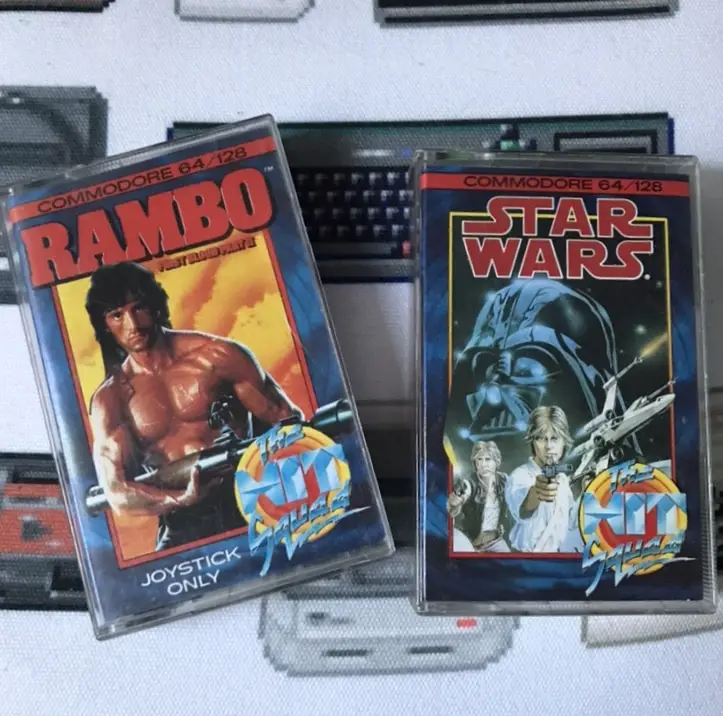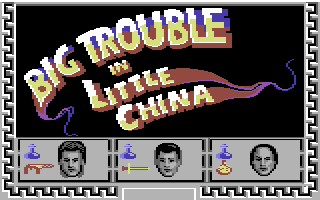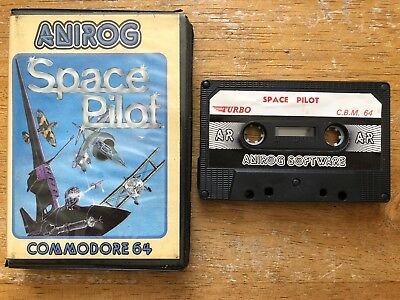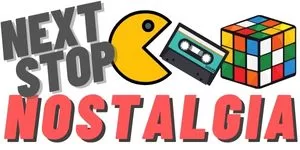When the 1980s ended I was 11. I lived through the decade where Video Games truly became a global phenomenon and still love playing 80s retro games. In the UK the home Micro’s ruled the 1980s gaming scene and you most likely had a Commodore, ZX Spectrum or an Amstrad in your home.
Consoles hadn’t yet made the mark that they would in the 1990s. At the beginning of the 80s hobbyists began programming games themselves but soon the publishers would take over and we would be living in a world of video games that ranged from arcade clones to official arcade conversions and movie based licensed games. We still play these 80s retro games today!
More 80s Gaming Fun:
- The Best 80s Arcade Racing Games
- The Best 80s Arcade Games of All Time
- 10 Addictive Retro Games
- The Best 80s Arcade Fighting and Beat Em Up Games
Ten 1980s Gaming Memories
With the decade came its own trials that only a gamer from that time would really live through. Let’s take a look at 10 things only 80s gamer did.
1. Borrow 80s Retro Games from Mates and Copy Them
In the UK in the 1980s most of us played games via a cassette player. Some had disk drives but for most of us it was all cassette-based gaming. With this came the opportunity to make back up copies of games and this was usually the case when you borrowed a new game from a mate. We were told this activity of copying games could bring down the industry a lot like pirated VHS tapes, but it never did.
2. Buy 1980s Gaming Magazines to Learn About New Games
We didn’t have the internet or YouTube in the 1980s, so we had to buy gaming magazines to learn about new games and new hardware. In the 1990s we would get more prominent TV shows about gaming but in the 1980s it was all about getting the latest gaming mag (or reading your mates).
3. Copy Code from 1980s Gaming Magazines to Get a Free game
With the gaming mags also came the free games. Free games were great but more often or not these came as pages and pages of code that had to be typed out on your computers keyboard and sometimes there would be typo’s too. I tried this a few times but never had the patience so always went down the route of pestering my parents for a new game.

4. Buy Really Cheap 80s Budget Retro Games from Everywhere
In the 1980s budget games for your home computer was big business in the UK. Publishers like Mastertonic provided gamers with good quality games for as little as £1.99. This was literally pocket money prices and these games were everywhere. You could pick up these games from the newsagent on a Sunday when you went with your dad to pick up the Sunday paper. What a time to be alive! I still have a lot of my 80s retro games in cassette form.

5. Get Disappointed by Bad Movie License Game
The 1980s was the decade that started producing games based around movies. We all know about E.T on the Atari 2600 (which isn’t as bad as the legend dictates) but for some of us who enjoyed movies (especially action movies) they were an easy sell. Although there were some great Movie based games like Batman, Platoon and Robocop there were also a lot of disappointment. Games would be produced in a hurry to catch the buzz of a successful film and on a lot of occasions gamers would end up disappointed. Big Trouble in Little China, Predator and A View to a Kill on the Commodore 64 all spring to mind.

6. Social Gaming in the 1980s
Nowadays all you need to do is power up your console and put on a set of headphones to play a video game with your mates. Back in the 1980s (and the 1990s to be fair) you either had to head to your local arcade or go around one of your mate’s house to play with other games. On home systems you only had 2 joystick ports but in the arcades games like Gauntlet encouraged 4 player gaming.
7. Lived Through the Golden Age of Clone Arcade Ports
In the early to mid-1980s the there was clones of popular arcade games everywhere. Bedroom coders would come up with their own versions of Galaxian and Pac Man and these would at times get picked and released by publishers. Clone titles were everywhere. On my first home computer the Acorn Electron I had Snapper (a Pac Man clone), Hopper (a Frogger Clone) and Arcadians (very similar to Galaxian) and this was the case across most systems. This would not happen today and sometimes it even went too far in the 1980s – see the Great Giana Sisters.
8. Buy an 80s Retro Game Based on the Box Art
In the 1980s especially the early 80s it was quite common to come across games that didn’t have any screenshots on the packaging. All you had to go on was the box art and any description on the back to help you make a purchasing decision. This happened a lot with cassette games and is not something the modern gamer would ever have to worry about.

9. Buy 80s Retro Games from Weird Locations
In the 1980s I would buy games from a shop called Boots. For those who don’t know Boots was a chain of shops are a health and beauty and pharmacy chain. Yes, you could go and get make up, cough medicine and sun cream but still be able to stop by the video game section to pick up the latest Commodore 64 or ZX Spectrum game. You would also often find games for sales on street markets and as I mentioned earlier in the article you could usually find budget games for sale in your local news agents.

80’s Handheld and Electronic Games
Retro Games with Bears – Do You Remember These?
10. Being Blown Away by Speech in 1980s Gaming
Speech wasn’t a common thing in the 1980s gaming, so if a programmer could squeeze some speech into their game more often or not it would stand out from the pack. The first time I played Ghostbusters at a friend’s house on the Commodore 64 and it loaded and screamed Ghostbusters at me was amazing as was playing the darts game 180 (a Mastertronic budget game) that if you got 180 digitised speech would scream the score at you. Amazing times.

If you haven’t seen it yet my previous article is here.
Daz


